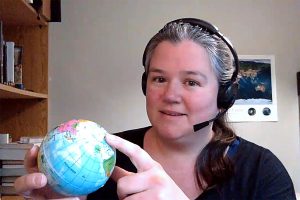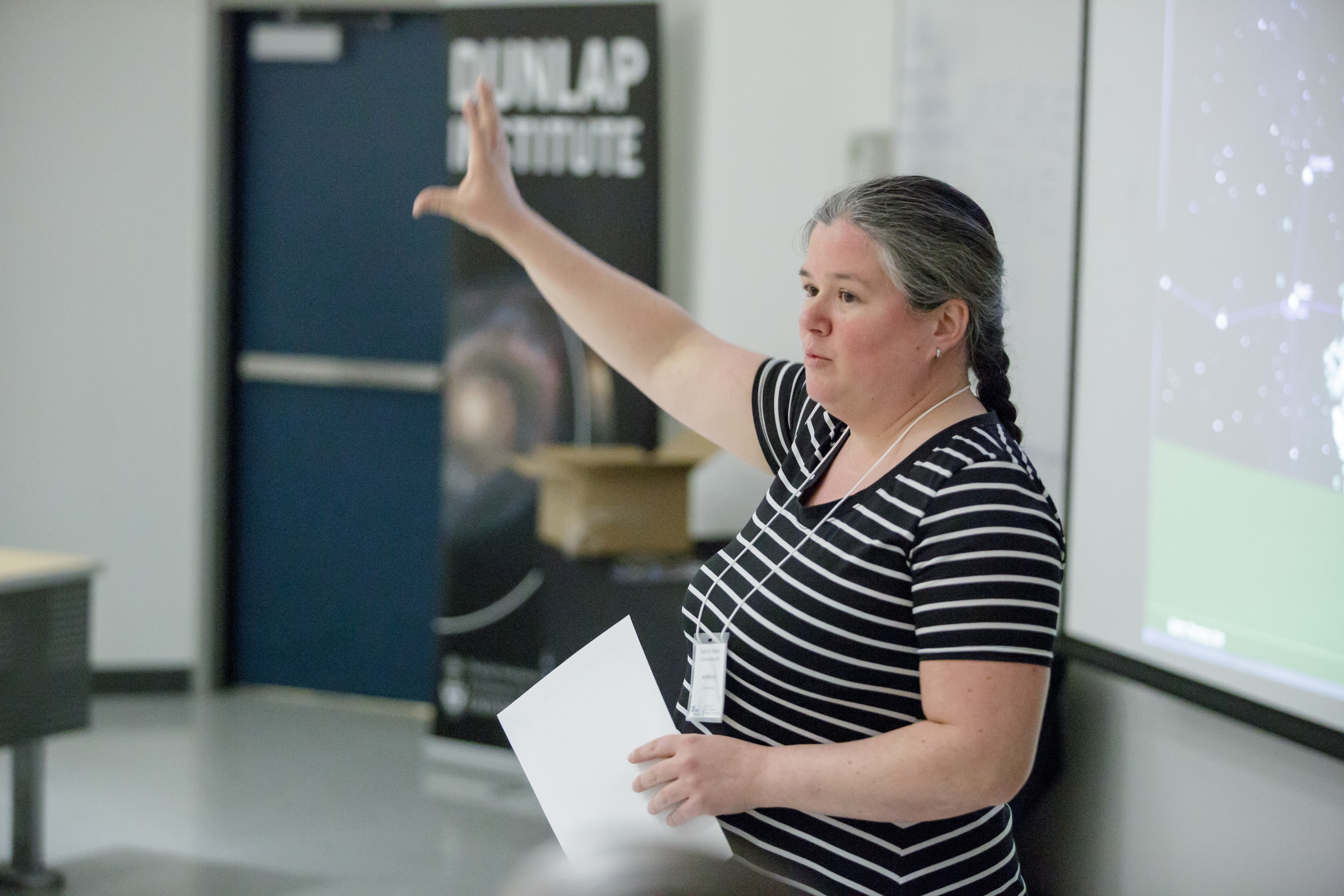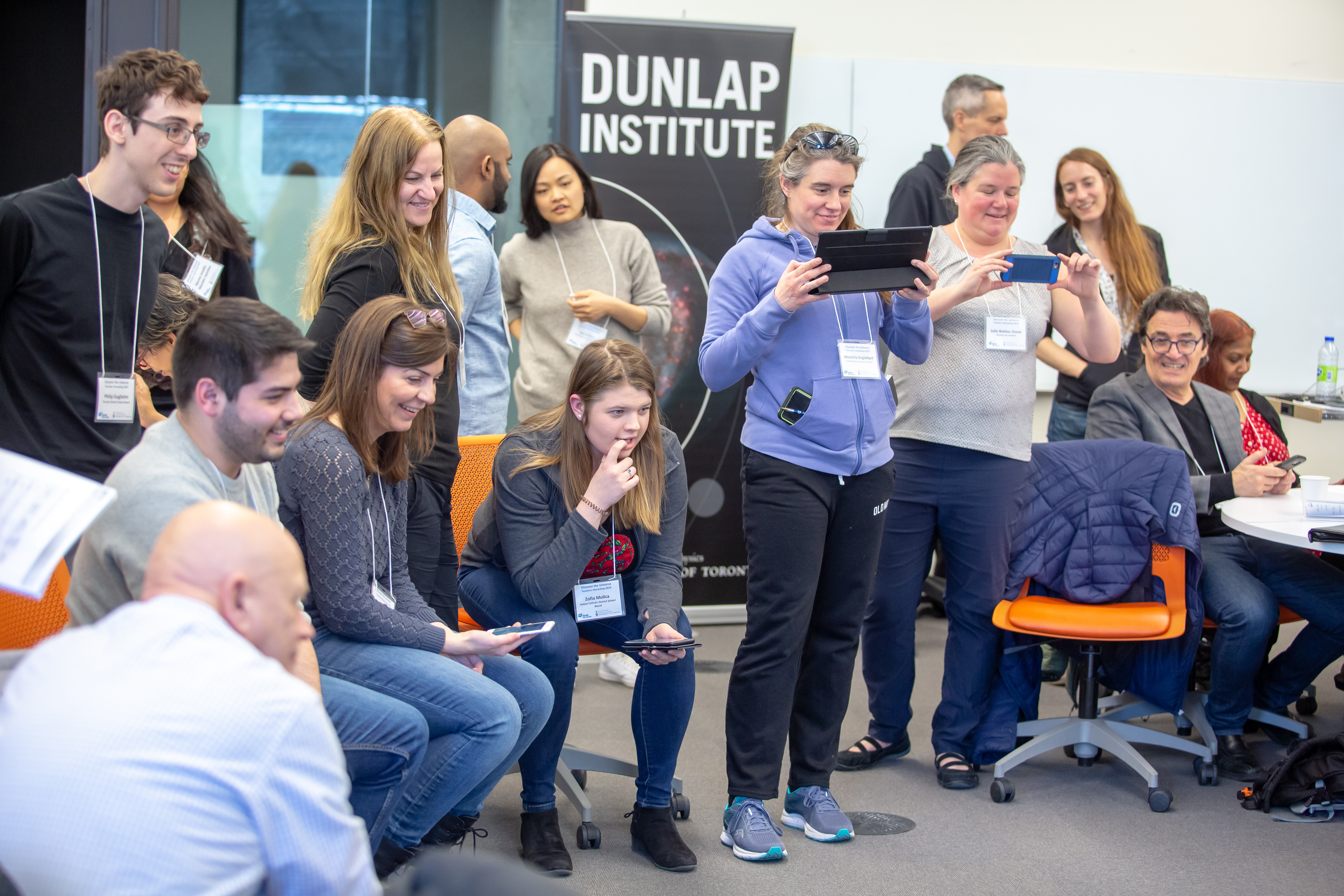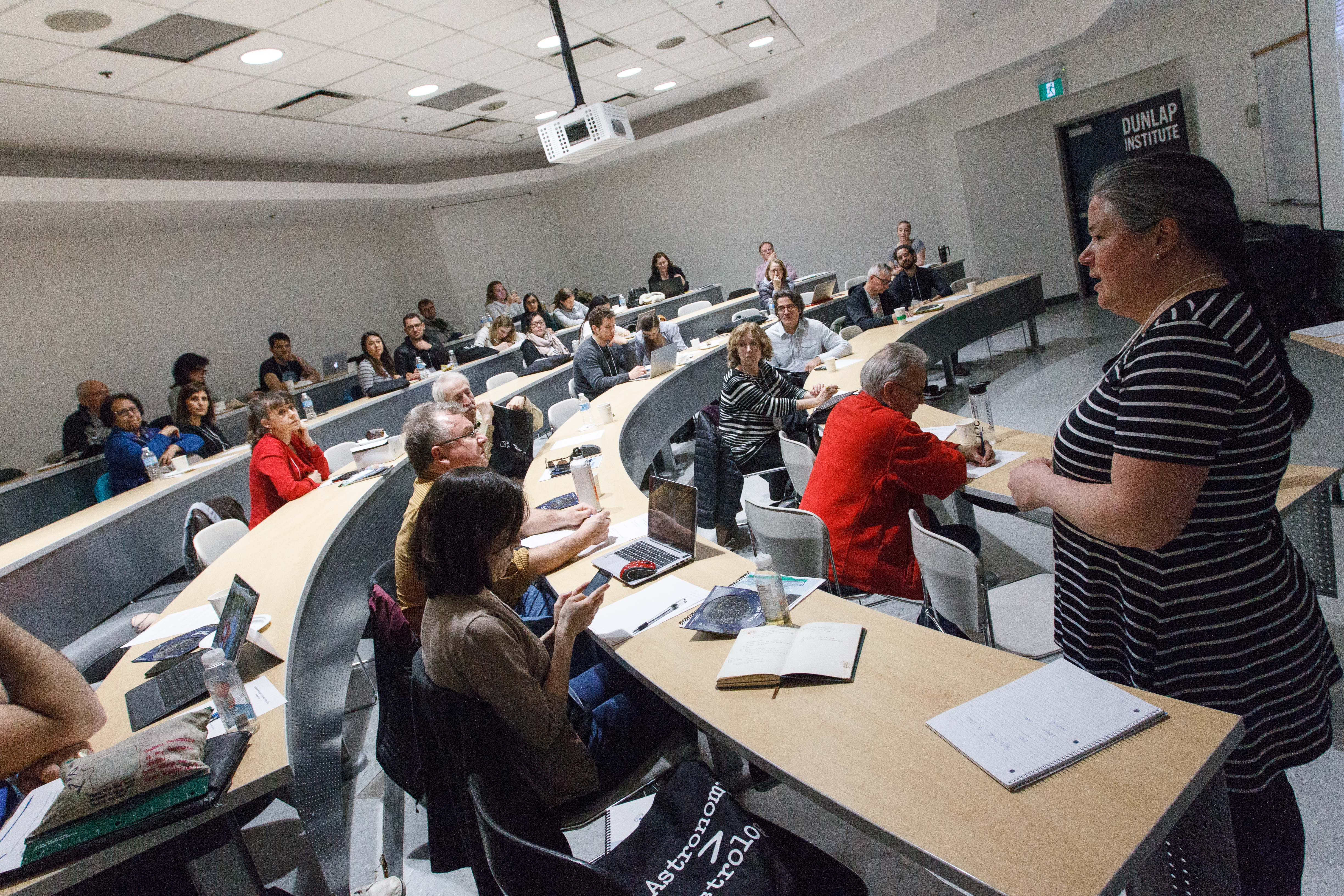Teaching the Teachers: Talking #SciComm with Julie Bolduc-Duval
In March, 2020, Dunlap Associate Julie Bolduc-Duval received the Canadian Astronomical Society’s Qilak Award for her contributions to the public’s understanding of astronomy.
Julie has dedicated her career to making astronomy accessible to teachers. An educator herself, she has taught physics and astronomy for over 15 years. She has been the coordinator for Discover the Universe since its launch in 2011. Through Discover the Universe, Julie offers free training in astronomy to teachers across the country and around the world, in both French and English.
The team at the Dunlap Institute sat down with Julie to chat about public outreach and science communication.
Congratulations on your award! Much of your outreach work has been through Discover the Universe. How did Discover the Universe first begin?
Discover the Universe was created as a Canadian legacy program of the International Year of Astronomy (2009). We thought helping educators across Canada would have a multiplicative effect since each educator will affect hundreds of students throughout their careers. The program started very slowly with one online workshop the first year and then adding new workshops and webinars every year after that. We’re really been able to expand the reach and create new resources when the Dunlap Institute adopted the program in 2016. I’ve very grateful for that.
What inspired you to first become involved in outreach?
I was lucky to have had the opportunity to try different jobs as a physics and astronomy student, including at two observatories in Quebec and BC. While I found research very interesting, I quickly realized I preferred sharing my passion with the public. Since then, I’ve provided public programming for all kinds of audiences, in both formal and informal education settings.
Why is it important to teach teachers about astronomy?
Astronomy is part of the K-12 curriculum in all provinces and territories, but the vast majority of teachers have no training or background in the subject. They do the best they can, but they have very limited time to look for resources. That’s where I come in! I use my astronomy knowledge to create training and educational resources to make the content accessible to teachers and their students. It’s a very rewarding job because I know it’s having a positive impact on thousands of youth across Canada every year.
I understand that Discover the Universe have been working with educators in countries all over the world. Can you tell me more about your international work?
Since our workshops and resources are free and available online, we reach educators in many different countries. An interesting target audience we didn’t think of when we started the program are French-speaking African countries who don’t have many local resources. I was recently in touch with a regular participant from Cameroon who is working to integrate astronomy in their curriculum across the country. He’s planning on using Discover the Universe resources to implement his plan. I’m glad my work can help people in so many different places!
Discover the Universe is a partnership with the Dunlap Institute for Astronomy & Astrophysics, with support from NSERC PromoScience, CASCA, CRAQ, the Trottier Foundation, and the Frederick & Douglas Dickson Memorial Foundation.



